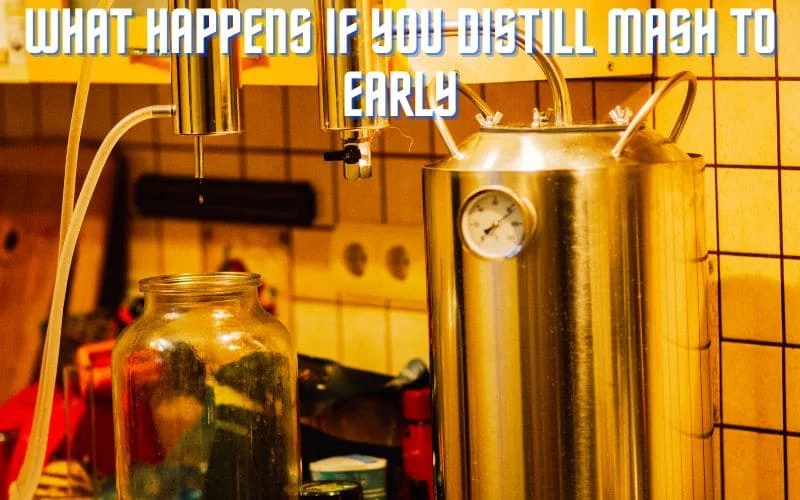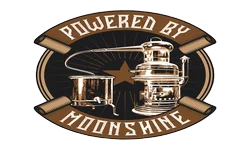What Happens If You Distill Mash Too Early? We Find Answers!

Introduction
Welcome to our comprehensive guide on distilling mash too early. In this article, we will explore the impact of premature distillation, shedding light on the chemical changes in the mash, effects on flavor and aroma, the quality of the distilled product, and remedies to rectify the adverse outcomes. Understanding the consequences of prematurely distilling mash is crucial for home distillers, as it directly influences the purity and excellence of the final spirit. Join us as we delve into this intriguing topic and uncover valuable insights.
Answering the Question
When it comes to distilling mash, timing is of the essence. Distilling the mash too early can have significant repercussions on the quality and characteristics of the final distilled product. In this section, we will provide detailed answers to the essential question, “What happens if you distill mash too early?” By examining the chemical changes in the mash, effects on flavor and aroma, and the overall quality of the distilled product, we will gain a comprehensive understanding of the consequences of premature distillation.
The Impact of Distilling Mash Too Early
1. Chemical Changes in the Mash
When discussing the chemical changes that occur in the mash during the distilling process, it is essential to delve into the intricate reactions taking place. The mash serves as the foundation for the final distilled product, and understanding its chemical transformations is crucial for achieving desired outcomes. Here are some key chemical changes that take place in the mash:
- Starch Conversion to Fermentable Sugars: The enzymatic activity in the mash catalyzes the breakdown of starch into fermentable sugars such as glucose and maltose. This process is pivotal for creating the alcohol content in the eventual distillate.
- Formation of Ethanol: The yeast present in the mash ferments the sugars, leading to the production of ethanol. This chemical conversion is central to the distillation process, as ethanol is the primary alcohol present in the final product.
- Creation of Congeners: Various chemical compounds known as congeners are formed during fermentation and contribute to the flavor, aroma, and character of the distilled spirit. These compounds include esters, aldehydes, and higher alcohols, and their presence is influenced by factors such as yeast strain and fermentation conditions.
2. Effects on Flavor and Aroma
Distilling mash too early can have a significant impact on the flavor and aroma of the final distilled product. Here are the main effects:
- Loss of complexity: Early distillation can result in a loss of complexity in the flavor profile. This is because the mash has not had enough time to develop the nuanced flavors that come from prolonged fermentation and maturation.
- Harshness: The premature distillation of mash can lead to a harsher and less refined taste in the distilled spirit. The process of allowing the mash to fully ferment and develop before distillation is essential for achieving a smoother and more well-rounded end product.
- Unpleasant Aromas: Early distillation can also give rise to unpleasant or off-putting aromas in the final product. These may be the result of incomplete chemical reactions and imbalances in the fermentation process.
3. Quality of the Distilled Product
- Distillation Efficiency: The timing of distillation can significantly impact the purity and quality of the final product. Early distillation may result in impurities being carried over into the distilled product, affecting its overall quality.
- Alcohol Content: Distilling mash too early can lead to a lower alcohol content in the finished spirit. The alcohol may not have reached its optimal concentration, impacting the taste and potency of the distilled product.
- Flavor Development: Early distillation can hinder the development of complex flavors and aromas. The maturation process of the mash might not have been completed, leading to a lack of depth and richness in the distilled product’s flavor profile.
- Chemical Composition: The premature extraction of the mash can result in an unbalanced chemical composition in the distilled product. This imbalance can affect the overall character and balance of the spirit, detracting from its quality.
4. Remedies for Distilling Mash Too Early
Distilling mash too early can have detrimental effects on the final product. It is crucial to understand the various remedies that can be applied to rectify this issue. Here are some effective remedies:
- Temperature Adjustment: Regular monitoring of the mash temperature is essential. Adjust the temperature to the optimal range for fermentation. Do this and you can help salvage the batch.
- Extended Fermentation Period: Allowing the mash to ferment for a longer duration can compensate for the premature distillation. This allows for complete conversion of sugars, leading to a more refined final product.
- Additional Enzymes or Yeast: In cases of premature distillation, introducing additional enzymes or specific strains of yeast can aid in further breaking down complex compounds, enhancing the quality of the distillate.
- Re-distillation: If feasible, re-distilling the product after appropriate adjustments and allowing for further maturation can help mitigate the effects of distilling the mash too early.
Conclusion
In conclusion, the impact of distilling mash too early is multifaceted and can fundamentally alter the qualitative aspects of the final distilled product. By being cognizant of the chemical changes in the mash, effects on flavor and aroma, and the overall quality of the distilled product, home distillers can make informed decisions to ensure the excellence of their spirits. This insightful exploration serves as a valuable resource for enthusiasts and professionals alike, providing an in-depth understanding of the consequences and remedies associated with prematurely distilling mash.
